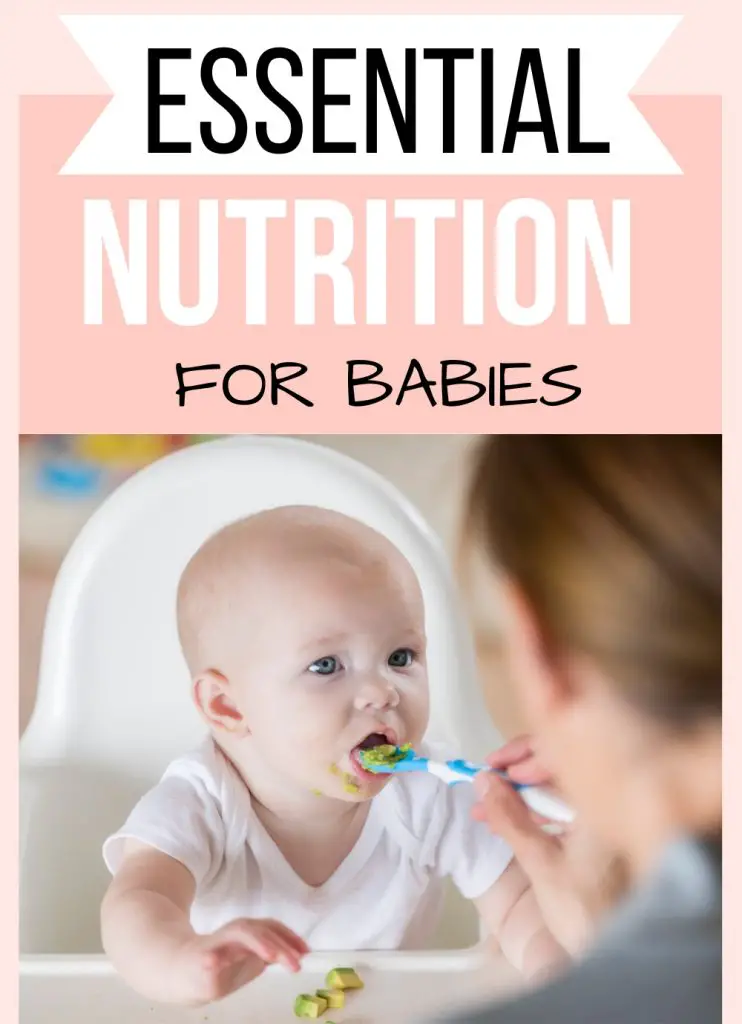Nutrition Tips For Babies In The First 12 Months
During the first 12 months of your baby’s life, proper nutrition plays a crucial role in their growth and development. It’s essential to understand and meet their nutritional needs to ensure they’re getting the right nourishment. Nutrition tips for babies in the first 12 months include knowing when to introduce solids, how to ensure your baby is getting all the nutrients they need, and the importance of breast milk or formula as the main sources of their nutrition. In this article, we’ll discuss these and other important tips for feeding your baby during this critical time.
Breast milk or formula should be your baby’s primary source of nutrition for the first six months, as it provides all the essential nutrients required for this stage CDC. As you introduce solid foods after six months, it’s important to continue offering breast milk or formula while incorporating appropriate, nutritionally dense foods to support their changing requiements and exposure to different textures and flavors.
Note: This post may contain affiliate links, which means if you buy from my link I might make a small commission. This does not affect the price you pay. See the full affiliate disclosure here.
Breastfeeding Vs Formula Feeding
Breast Milk Advantages
Breast milk is highly recommended for the first 6 months of your baby’s life, as it offers numerous health benefits for both you and your child. It contains the perfect balance of nutrients, such as protein, carbohydrates, fat, and calcium, that your baby requires for growth and development. Additionally, breast milk provides natural antibodies to help your baby resist illnesses and infections.
Here are some benefits of feeding your child with breast milk:
- Easy digestion: As breast milk is specifically designed for human babies, it is more easily digestible compared to formulas.
- Weight control: Research indicates that babies who are breastfed tend to have a lower risk of obesity in adulthood.
- Bonding: Breastfeeding can help foster a strong emotional connection between you and your baby.
Infant Formula Advantages
While breastfeeding is the ideal option for many, sometimes it may not be possible, and choosing infant formula becomes necessary. Infant formulas come in several varieties, catering to specific dietary and medical needs. They are designed to mimic the nutritional composition of breast milk, ensuring your baby receives the essential nutrients required for growth and overall development.
Some advantages of using infant formula include:
- Flexibility: Using infant formula allows for greater flexibility and convenience. Family members and caregivers can participate in feeding, giving you more time to rest and recover.
- Consistency: Infant formula remains consistent, so you don’t have to worry about variations in the nutritional content of your milk due to diet, stress, or illness.
- Dietary freedom: Women who choose formula feeding can enjoy greater dietary freedom as their food choices will not directly impact the baby’s nutrition.

Essential Nutrients For Babies The First 12 Months
Proper nutrition is vital for your baby’s growth and development during the first year of life. Nutrition tips for babies in the first 12 months include knowing when to introduce solids, how to ensure your baby is getting all the nutrients they need, and the importance of breast milk or formula as the main sources of their nutrition. In this section, we will discuss the essential nutrients your baby needs, including vitamins, minerals, and macronutrients. By understanding these key nutrients and how to incorporate them into your baby’s diet, you can help support their growth and development during this critical time.
Key Vitamins and Minerals
Your baby requires several key vitamins and minerals to support their growth and development. Some important ones include:
- Vitamin A: Essential for vision, immunity, and overall growth.
- Vitamin D: Supports bone health and immune function.
- Iron: Critical for brain development and the prevention of anemia.
- Calcium: Vital for strong bones and teeth.
- Zinc: Supports immune function and growth.
Ensure that your baby gets these essential nutrients through breast milk, infant formula, and, eventually, solid foods.
Macronutrients: Protein, Fat, and Carbohydrates
Your baby also needs macronutrients – protein, fat, and carbohydrates – in their diet. These nutrients provide energy and play a crucial role in growth and development.
Protein: Aids in muscle growth and tissue repair. Sources include breast milk, infant formula, and later on, lean meats, beans, and dairy products. During the first 12 months, the amount of protein your baby needs will vary depending on their age and weight.
Fat: Essential for brain development and overall growth. Healthy sources of fat include breast milk, infant formula, and later, foods like avocado, olive oil, and whole milk dairy products. The American Academy of Pediatrics recommends that infants receive about 50% of their daily calories from fat during the first year.
Carbohydrates: Provide energy for your baby’s growing body. Sources include breast milk, infant formula, and eventually, whole grains, fruits, and vegetables. As your baby transitions to solid foods, aim to offer a variety of healthy, complex carbohydrates to support their energy needs and overall health.
By ensuring that your baby receives the necessary vitamins, minerals, and macronutrients during the first 12 months of life, you will provide the foundation for a healthy, thriving childhood.
Introducing Solid Foods
When To Start
According to the CDC, you can start introducing solid foods to your baby at around 6 months old. By 7 or 8 months old, your baby can eat a variety of foods from different food groups.
Signs Your Baby Is Ready
There are some signs that show your baby is ready for solid foods:
- Baby can hold their head up and sit up without support
- Baby no longer has the tongue-thrust reflex (pushing food out of their mouth)
- Baby shows interest in the food you eat
First Foods To Try
The American Academy of Pediatrics suggests starting with single-grain cereals, such as rice, oatmeal, or barley. However, try to avoid feeding your baby only rice cereal due to possible exposure to arsenic, as mentioned by the Mayo Clinic.
Here’s a list of first foods you can try:
- Cereals: Single-grain cereals, such as rice, oatmeal, or barley
- Fruits: Soft, mashed fruits, such as bananas or applesauce
- Vegetables: Puréed or steamed and mashed vegetables, like carrots, sweet potatoes, or peas
- Proteins: Puréed meats, poultry, beans, or iron-fortified cereals
During mealtime, mix the cereal with breast milk, formula, or water until it’s runny. Gradually thicken the consistency by using less liquid. Introduce solid foods one at a time, and wait for a few days before introducing another new food to watch for potential food allergies.
Remember to discuss your baby’s vitamin D needs with your pediatrician, as babies need an adequate intake of vitamin D to support their growth and development.
Iron-Rich Foods For Babies
During the first 12 months of your baby’s life, meeting their nutritional needs is crucial for their growth and development. Nutrition tips for babies in the first 12 months include knowing when to introduce solids, how to ensure your baby is getting all the nutrients they need. One essential nutrient for your baby is iron. This mineral plays a vital role in supporting the healthy development of your baby’s brain and nervous system. So, here are some iron-rich foods you can introduce to your baby’s diet to help ensure they’re getting enough of this important nutrient.
Start by giving your baby iron-fortified infant cereals when they are around 4 months old. These cereals provide a good source of iron and are often recommended as a first solid food for babies.
Once your baby starts eating solids, consider introducing tofu, beans, and lentils to their diet. These plant-based foods are not only rich in iron but also provide other essential nutrients for your baby’s growth.
You can also add dark green leafy vegetables, like spinach and kale, to your baby’s meals. These veggies are excellent sources of iron and can be pureed or cooked soft for easy consumption.
To help your baby absorb the iron from non-heme sources like vegetables and grains, pair them with foods high in vitamin C, such as citrus fruits, berries, and tomatoes. Vitamin C aids in the absorption of iron from plant-based foods, so including these fruits in your baby’s meals may help them get the most out of their iron-rich diet.
Meat, poultry, and seafood are also great sources of iron. As your baby gets older and starts to eat more solids, you can introduce them to pureed or finely chopped meat and fish, ensuring they get the necessary nutrients from these iron-rich animal sources.
Conclusion
Throughout the first 12 months, continue to breastfeed or provide formula alongside solid foods. This ensures your child receives essential nutrients for growth and development. Nutrition tips for babies in the first 12 months include knowing when to introduce solids, how to ensure your baby is getting all the nutrients they need, and the importance of breast milk or formula as the main sources of their nutrition. Keep an open communication with your pediatrician regarding any concerns or questions related to your baby’s nutrition. They can provide guidance on what and how much to feed your baby, as well as help you navigate any challenges that may arise.
Always remember to consult with your healthcare provider to make informed decisions about your baby’s nutrition. Each baby is unique, and their nutritional needs may vary. Keeping an open line of communication with your pediatrician can help ensure your baby receives the best possible care during their pivotal first year.
Disclosure: I am not a medical person so this post serves only for informational purposes. I simply share what I’ve researched, tried, and found useful. Please consult your pediatrician before undertaking any alternative treatment.







